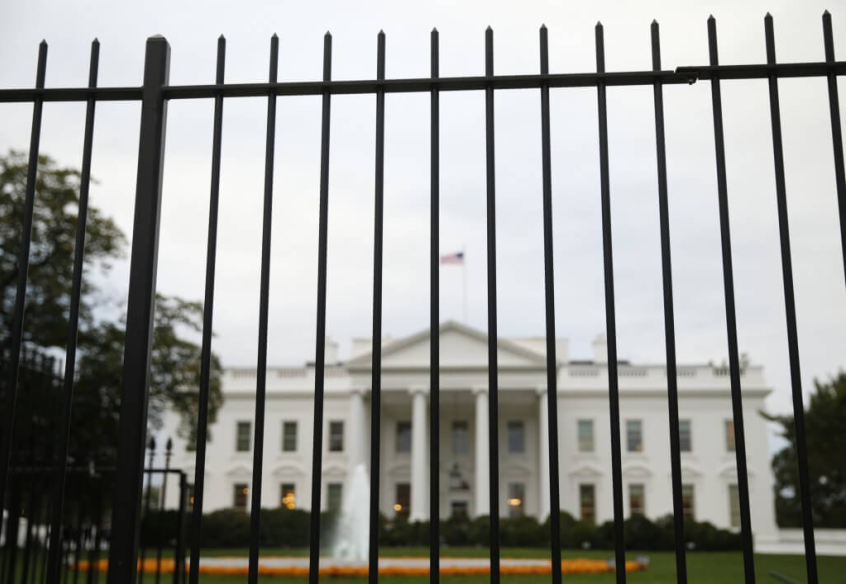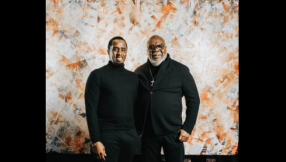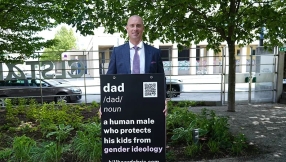Christian leaders are set to march on the White House this month as part of an ecumenical movement aimed at 'reclaiming Jesus'.
Among those taking part on May 24 will be Michael Curry, presiding bishop of The Episcopal Church, Jim Wallis, president and founder of Sojourners, and theologian Walter Brueggemann.
The march will see the launch of the Reclaiming Jesus Declaration, which describes President Trump's campaign slogan, 'America First', as 'heresy'

It begins with the warning: 'We are living through perilous and polarizing times as a nation, with a dangerous crisis of moral and political leadership at the highest levels of our government and in our churches. We believe the soul of the nation and the integrity of faith are now at stake.
'It is time to be followers of Jesus before anything else – nationality, political party, race, ethnicity, gender, geography – our identity in Christ precedes every other identity.'
It warns of politics 'undermining' theology and of government ceasing 'to serve the common good'. It is fiercely critical of developments in US public life, saying: 'We reject the resurgence of white nationalism and racism in our nation on many fronts, including the highest levels of political leadership.'
Signatories also reject 'misogyny, the mistreatment, violent abuse, sexual harassment, and assault of women that has been further revealed in our culture and politics, including our churches, and the oppression of any other child of God'.
The declaration represents a comprehensive attack on President Trump's agenda, continuing: 'We strongly deplore the growing attacks on immigrants and refugees, who are being made into cultural and political targets, and we need to remind our churches that God makes the treatment of the "strangers" among us a test of faith (Leviticus 19:33-34). We won't accept the neglect of the well-being of low-income families and children, and we will resist repeated attempts to deny health care to those who most need it. We confess our growing national sin of putting the rich over the poor. We reject the immoral logic of cutting services and programs for the poor while cutting taxes for the rich.'
In an apparent personal reference to Trump – without naming him – it says: 'We reject the practice and pattern of lying that is invading our political and civil life. Politicians, like the rest of us, are human, fallible, sinful, and mortal. But when public lying becomes so persistent that it deliberately tries to change facts for ideological, political, or personal gain, the public accountability to truth is undermined.'
The declaration also condemns nationalism and xenophobia, continuing with a rejection of Trump's campaign slogan: 'We reject "America first" as a theological heresy for followers of Christ. While we share a patriotic love for our country, we reject xenophobic or ethnic nationalism that places one nation over others as a political goal.'
The declaration was criticised by the president of the conservative Institute on Religion & Democracy, Mark Tooley, who tweeted: 'Denouncing political stances as "heresy" is often unwise & confuses categories; prelates most prone to it often are least likely to identify genuinely doctrinal heresy.'













